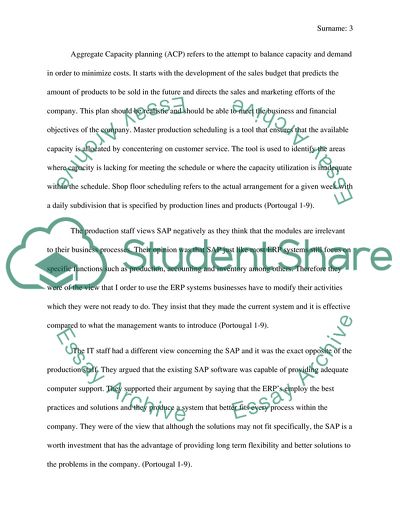ERP Implementation for Production Planning at ECakes Questions/Answers Case Study - 1. https://studentshare.org/e-commerce/1757487-erp-implementation-for-production-planning-at-ecakes-questionsanswers-per-the-case-attached
ERP Implementation for Production Planning at ECakes Questions/Answers Case Study - 1. https://studentshare.org/e-commerce/1757487-erp-implementation-for-production-planning-at-ecakes-questionsanswers-per-the-case-attached.


